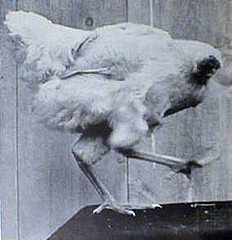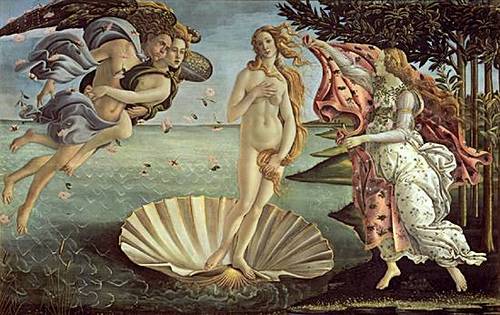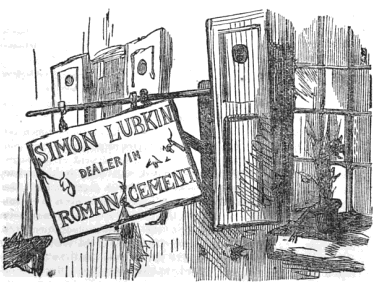
Mike the Headless Chicken was something of a celebrity in the western U.S. in the 1940s. He started life as an ordinary Wyandotte rooster in Fruita, Colo., but a botched decapitation in 1945 missed his brain stem and jugular vein, leaving him headless but still mostly functional.
When the rooster did not die, his surprised owner resolved to care for him permanently, feeding him milk and water with an eyedropper, as well as small grains of corn. Mike actually put on weight on this regimen: At his beheading he weighed 2.5 pounds; at his death he was up to nearly 8.
Mike reportedly seemed fairly happy with his headless existence. He could balance on a perch and walk clumsily; he would even attempt to preen and crow, as far as possible without a head.
On tour, Mike made $4,500 a month at West Coast sideshows. Animal-rights activists were aghast, but several humane societies examined him and declared he was free from suffering. He finally died in March 1947 at a Phoenix motel, 18 months after losing his head.
To this day, Fruita holds a “Mike the Headless Chicken Day” each year on the third weekend of May. Events include Pin the Head on the Chicken, a “chicken cluck-off,” and chicken bingo, in which chicken droppings fall on a numbered grid to determine the numbers.




